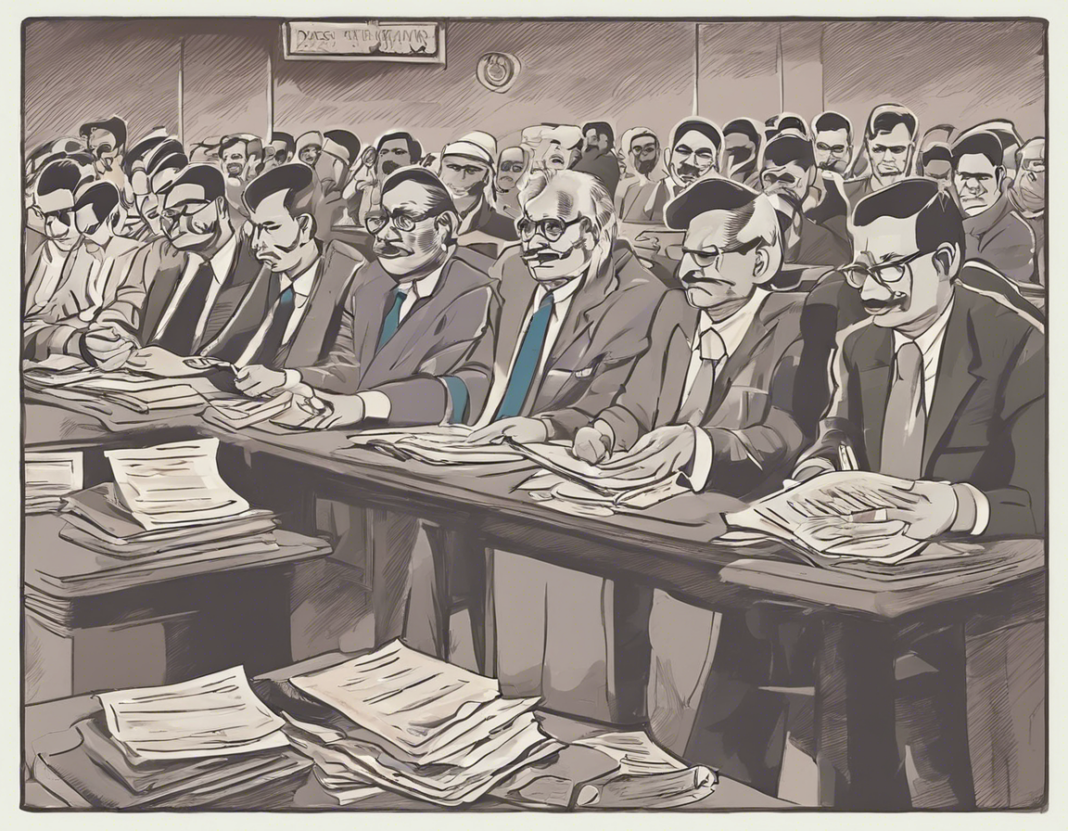Introduction
Corruption has been a longstanding issue in India, impacting its development and growth. From bureaucratic red tape to bribery, corruption has seeped into various facets of society, hindering progress and exacerbating inequality. However, strides have been made in recent years to combat this systemic issue and build a more corruption-free India that fosters development. This article delves into the challenges posed by corruption, the initiatives undertaken to tackle it, and the way forward towards a more transparent and accountable governance system.
The Impact of Corruption on Development
Corruption in India pervades both the public and private sectors, leading to a range of detrimental consequences for development. One of the key issues is the siphoning of public funds meant for welfare programs and infrastructure projects. When funds are embezzled or misused, the intended beneficiaries are deprived of essential services, perpetuating poverty and inequality.
Moreover, corruption erodes trust in institutions and undermines the rule of law. When bribery becomes commonplace, it distorts decision-making processes and favors vested interests over the common good. This not only stalls economic progress but also stifles innovation and entrepreneurship. Corruption also hampers foreign investment, as businesses are wary of operating in environments where transparency and accountability are lacking.
Initiatives to Combat Corruption
Recognizing the need to address corruption, the Indian government has taken several steps to instill accountability and transparency in governance. The introduction of technology has played a significant role in reducing opportunities for corruption. Initiatives such as the Digital India program and online portals for citizen services have streamlined procedures and minimized direct contact with officials, thereby reducing the chances of bribery.
The implementation of the Goods and Services Tax (GST) has also been a milestone in combating corruption. By unifying multiple taxes and creating a transparent tax regime, the GST has reduced opportunities for tax evasion and streamlined the taxation process. Additionally, the introduction of the Direct Benefit Transfer (DBT) scheme has helped in plugging leakages in welfare programs by directly transferring benefits to the bank accounts of beneficiaries.
The Role of Civil Society and Media
Civil society organizations and the media have been instrumental in exposing corruption and advocating for accountability. Whistleblower protections and the Right to Information Act have empowered citizens to demand transparency from public officials and institutions. Social audits and citizen monitoring mechanisms have also been effective in holding authorities accountable for their actions.
Media plays a pivotal role in shaping public opinion and holding power to account. Investigative journalism and exposés have brought to light numerous corruption scandals, putting pressure on authorities to take action. By fostering a culture of transparency and pushing for ethical governance, the media acts as a watchdog, ensuring that the voices of the marginalized are heard and injustices are exposed.
The Way Forward: Building a Transparent and Accountable India
To further the progress made in combating corruption, concerted efforts are needed at various levels. Strengthening institutional frameworks and enforcing strict penalties for corrupt practices are essential to deter future misconduct. Building a robust judicial system that expedites cases related to corruption is crucial for restoring faith in the rule of law.
Promoting ethical leadership and integrity in public service is another key aspect of building a corruption-free India. Implementing codes of conduct and ethics training for officials can help instill a culture of honesty and accountability. Emphasizing meritocracy in appointments and promotions can also reduce instances of nepotism and favoritism.
Enhancing public participation in governance processes is vital for fostering transparency and accountability. Citizens should be encouraged to actively engage in decision-making processes and monitor the implementation of policies and programs. Platforms for feedback and grievance redressal can empower individuals to hold authorities accountable and demand responsive governance.
Key Challenges and Roadblocks
Despite the progress made, several challenges persist in the fight against corruption in India. Limited access to justice for marginalized communities and the slow pace of legal proceedings hinder accountability and deter whistleblowers from coming forward. Political interference in investigative agencies and a lack of autonomy for anti-corruption bodies also impede the effectiveness of enforcement mechanisms.
The prevalence of a cash-based economy and illicit financial flows pose significant challenges in tracing and preventing corrupt practices. Money laundering and tax evasion schemes further exacerbate the issue, necessitating stronger regulations and international cooperation to combat financial crimes. Building a robust framework for asset recovery and forfeiture is essential to disincentivize corruption and recover ill-gotten gains.
Frequently Asked Questions (FAQs)
-
Why is corruption a significant obstacle to development in India?
Corruption diverts resources from public welfare programs, erodes trust in institutions, and distorts decision-making processes, hindering overall development. -
What role can technology play in combating corruption?
Technology can enhance transparency and reduce opportunities for corruption through online portals, digital payments, and data analytics to track public expenditures. -
How can citizens contribute to anti-corruption efforts in India?
Citizens can report instances of corruption, demand accountability from officials, participate in social audits, and exercise their right to information to hold authorities accountable. -
What measures has the Indian government implemented to tackle corruption?
The government has introduced initiatives such as the Digital India program, GST, DBT scheme, and whistleblower protections to combat corruption and promote transparency in governance. -
Why is a strong judicial system crucial in fighting corruption?
A robust judicial system can ensure swift justice, enforce penalties for corrupt practices, and uphold the rule of law, instilling faith in the justice system and deterring future misconduct.
In conclusion, building a corruption-free India is imperative for sustainable development and inclusive growth. By leveraging technology, strengthening institutional frameworks, empowering citizens, and promoting ethical leadership, India can pave the way for a more transparent and accountable governance system. It requires a collective effort from all stakeholders to root out corruption and foster a culture of integrity and good governance.

